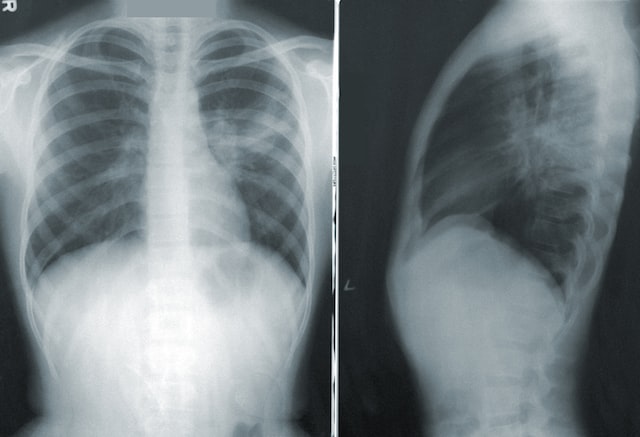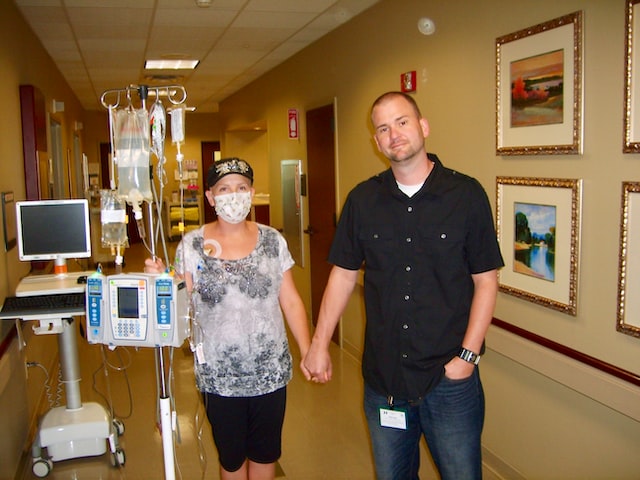Apparatus
Over 30% Of Tumours In Advanced Lung Cancer Patients In Remission With Frontier Drug Teliso-V In Combination With Troche!
Recently, a study for the treatment of advanced EGFR-mutated and c-MET-positive lung cancer showed good results with the cutting-edge ADC drug teliso-V in combination with the EGFR generation-targeted drug troche (i.e. erlotinib).

Recently, a study for the treatment of advanced EGFR-mutated and c-MET-positive lung cancer showed good results with the cutting-edge ADC drug teliso-V in combination with the EGFR generation-targeting agent troche (i.e. erlotinib).

Promising results for teliso-V in combination with troche in patients with EGFR-mutated and c-MET-positive non-small cell lung cancer, according to the results of the Phase Ib clinical trial (NCT02099058). These were patients with advanced disease who were inoperable and had no other approved treatment options.
In the study, 42 c-MET-positive patients were treated with the ADC drug teliso-V once every 21 days and with trospium once daily.
A total of 36 patients were tested to assess efficacy. The results showed that tumours shrank or disappeared completely in 30.6% of the total number of patients, including 52.6% of lung cancer patients with high c-MET expression and EGFR mutations.
The researchers noted that patients with non-small cell lung cancer often develop resistance mutations or abnormal activation of c-MET, a protein that promotes tumour progression, following treatment with EGFR-targeted therapy. This study tested the safety, pharmacokinetics and preliminary efficacy of a combination regimen of the c-MET drug teliso-V and the EGFR-targeting drug trospium.
Patients enrolled in this study had to be confirmed to have detectable c-MET overexpression, MET exon 14 jump mutation or MET amplification. A subset of patients in this study also carried EGFR19/21 mutations and had tumour progression during prior targeted therapy. In addition, patients needed to have adequate bone marrow and liver and kidney function.

In this study, all patients were c-MET positive, 28 of whom carried EGFR19/21 mutations, 5 were EGFR wild type (no EGFR mutations) and 3 were rare or unknown EGFR mutations. The mean age of the patients was 65 years and 97% of them had non-squamous non-small cell lung cancer.
Notably, many of these patients had been treated extensively. For example, 25 patients had received ≥3 prior treatments.

All patients enrolled experienced at least 1 treatment adverse event during treatment, with peripheral neuropathy, acne-like farts, diarrhoea and hypoalbuminemia being the more common problems.
In January 2022, the FDA granted teliso-V breakthrough therapy designation for the treatment of advanced or metastatic EGFR wild-type non-squamous non-small cell lung cancer in patients with high levels of c-MET overexpression and tumour progression during/after platinum-based chemotherapy.

The ongoing phase II clinical trial M14-239 (NCT03539536) showed that single-agent teliso-V treatment achieved significant tumour reduction or complete disappearance in 53.8% of patients treated in second or third line, with 25% of patients with moderate c-MET expression having significant tumour reduction or complete disappearance.
-
![]()
![]() ApparatusDec 24, 2024
ApparatusDec 24, 2024Nature Medicine publishes results of H-drug combined with chemotherapy for first-line treatment of esophageal squamous cell carcinoma
-
![]()
![]() ApparatusDec 23, 2024
ApparatusDec 23, 2024Immune And Astrazeneca Launch Strategic Research Collaboration To Accelerate Drug Target Discovery
-
![]()
![]() ApparatusDec 22, 2024
ApparatusDec 22, 2024The 3D Medical Application Center of the U.S. Army customized assistive devices and artificial limbs for 3D printing of veterans
-
![]()
![]() ApparatusDec 21, 2024
ApparatusDec 21, 2024J. Enzyme Inhib. Med. Chem. | Protac Targeting Aimp2-Dx2: a New Therapy For Lung Cancer
-
![]()
![]() ApparatusDec 20, 2024
ApparatusDec 20, 2024Canada has developed a hand-held detector to help reduce the use of antibiotics




